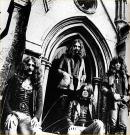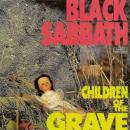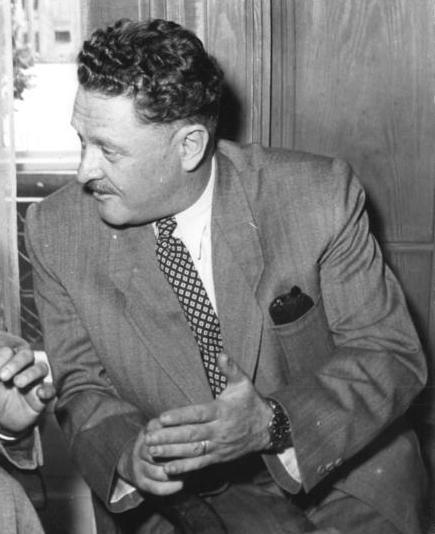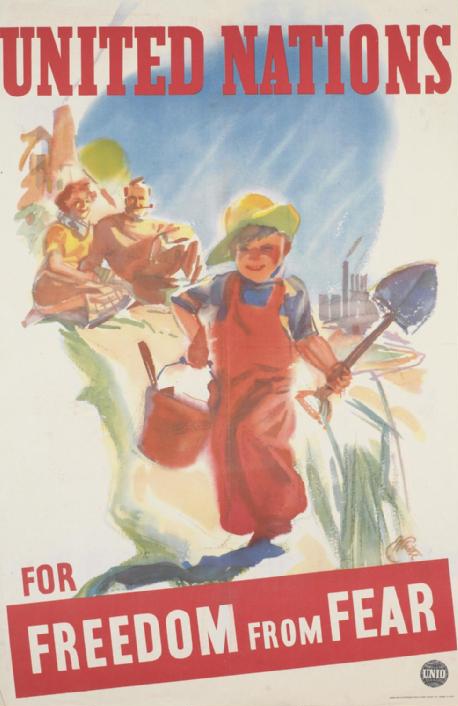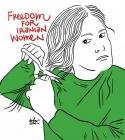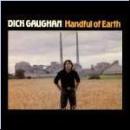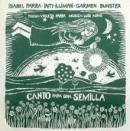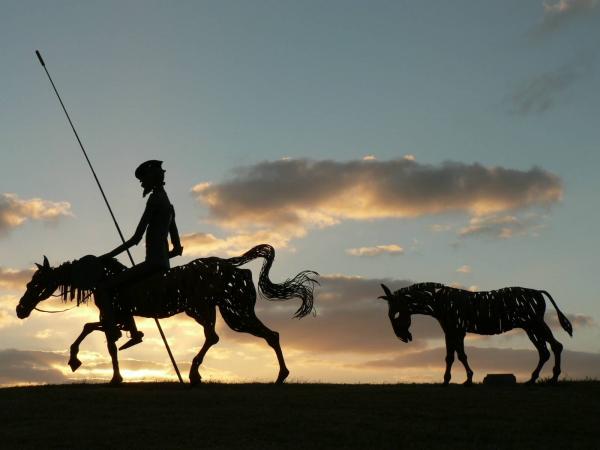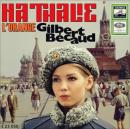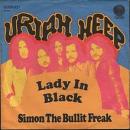Im Gefängnis zu singen
Traduzione dei versi originali di Bertolt Brecht / Translation of the original verses by Bertolt Brecht / Traduction des vers originaux de Bertolt Brecht / Übersetzung der Originalverse von Bertolt Brecht / Bertolt Brechtin alkuperäisten säkeiden suomennos: Juha Rämö
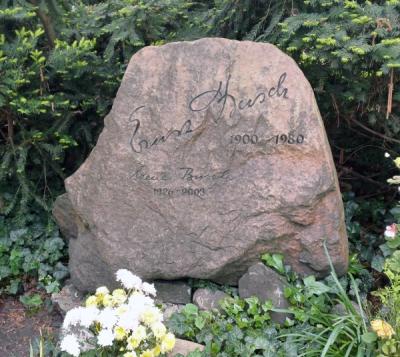
Vankilasta kuuluu laulu
(Continues)
(Continues)
Contributed by Juha Rämö 2025/11/18 - 13:24
Edward
Anonymous

Velisurmaaja / Poikani poloinen
Versione finlandese
Finnish version
In realtà, la rappresentante finlandese del filone c’era già da tempo, nel sito (18 aprile 2019): si tratta di Velisurmaaja “Il fratricida”, nota anche come Poikani poloinen “Povero figlio mio”. Solo che, nel 2019, era stata inserita in tutt’altro contesto e, ovviamente, ancora non esisteva il recentissimo percorso sulle Murder Ballads. Un accenno a questa versione finlandese non poteva però essere tralasciato qui; rimandiamo quindi alla relativa pagina per i testi e le traduzioni, limitandoci qui a (re)inserire il video della versione dei Niekku (che è troppo bella):
Accompagnato da un video della sig.ra Anne Karpinen, che canta un po' "Sven i Rosengård" in svedese, e un po' "Velisurmaaja":
Versione finlandese
Finnish version
In realtà, la rappresentante finlandese del filone c’era già da tempo, nel sito (18 aprile 2019): si tratta di Velisurmaaja “Il fratricida”, nota anche come Poikani poloinen “Povero figlio mio”. Solo che, nel 2019, era stata inserita in tutt’altro contesto e, ovviamente, ancora non esisteva il recentissimo percorso sulle Murder Ballads. Un accenno a questa versione finlandese non poteva però essere tralasciato qui; rimandiamo quindi alla relativa pagina per i testi e le traduzioni, limitandoci qui a (re)inserire il video della versione dei Niekku (che è troppo bella):
Accompagnato da un video della sig.ra Anne Karpinen, che canta un po' "Sven i Rosengård" in svedese, e un po' "Velisurmaaja":
(See relevant page)
Contributed by Riccardo Venturi 2025/11/12 - 12:08
Kaivantomiehen laulu

[1902]
Lyrics / Testo / Paroles / Sanat : Santeri Mäkelä
Music / Musica / Musique / Sävel : trad.
Santeri (Aleksanteri) Mäkelä era nato a Vimpeli, nella regione dell’Ostrobotnia Meridionale, nel 1870. Di famiglia contadina, era emigrato negli Stati Uniti nel 1899, dove andò a lavorare in miniera come tanti suoi connazionali emigrati; e questa canzone, che utilizza una melodia tradizionale e riflette le durissime condizioni di vita e di lavoro dei minatori, appartiene a quel periodo. Santeri Mäkelä tornò in Finlandia nel 1907; la sua canzone fu però pubblicata nel Työväen Laulukirja (“Canzoniere dei Lavoratori”) edito a Hancock, Michigan, nel 1909. Da allora, una delle canzoni più note ed amate dai lavoratori finlandesi, sia nella diaspora (particolarmente negli USA, come è ovvio), sia in patria. Santeri Mäkelä fu membro del parlamento finlandese dal 1910 al 1914, e ancora dal 1917 al 1918... (Continues)
Lyrics / Testo / Paroles / Sanat : Santeri Mäkelä
Music / Musica / Musique / Sävel : trad.
Santeri (Aleksanteri) Mäkelä era nato a Vimpeli, nella regione dell’Ostrobotnia Meridionale, nel 1870. Di famiglia contadina, era emigrato negli Stati Uniti nel 1899, dove andò a lavorare in miniera come tanti suoi connazionali emigrati; e questa canzone, che utilizza una melodia tradizionale e riflette le durissime condizioni di vita e di lavoro dei minatori, appartiene a quel periodo. Santeri Mäkelä tornò in Finlandia nel 1907; la sua canzone fu però pubblicata nel Työväen Laulukirja (“Canzoniere dei Lavoratori”) edito a Hancock, Michigan, nel 1909. Da allora, una delle canzoni più note ed amate dai lavoratori finlandesi, sia nella diaspora (particolarmente negli USA, come è ovvio), sia in patria. Santeri Mäkelä fu membro del parlamento finlandese dal 1910 al 1914, e ancora dal 1917 al 1918... (Continues)
Niin musta, niin musta on ikuinen yö,
(Continues)
(Continues)
Contributed by Riccardo Venturi 2025/6/27 - 00:04
Song Itineraries:
The War of Labour: Emigration, Immigration, Exploitation, Slavery
The Trump Deportation Song

Jos olet ikäihminen, Trump karkottaa sinut.
(Continues)
(Continues)
Contributed by Juha Rämö 2025/4/15 - 17:14
Last Night I Had The Strangest Dream
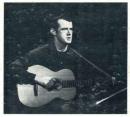
MÄ VIIME YÖNÄ UNTA NÄIN (Continues)
Contributed by Juha Rämö 2024/12/31 - 15:00
Der Krieg, der kommen wird

Näillä Bertolot Brechtin ajankohtaisilla säkeillä vuodelta 1937 toivotan kaikille tämän verkkosivun ylläpitäjille ja ystäville rauhallista joulua ja hyvää uutta vuotta.
SOTA, JOKA ON TULOSSA (Continues)
Contributed by Juha Rämö 2024/12/20 - 11:36
The Green Fields Of France (No Man's Land)

FINLANDESE / FINNISH
Versione finlandese di Juha Rämö
Suomennos: Juha Rämö
Finnish version by Juha Rämö
Version finnoise de Juha Rämö
Versione finlandese di Juha Rämö
Suomennos: Juha Rämö
Finnish version by Juha Rämö
Version finnoise de Juha Rämö
Ranskan vihreät kunnaat
(Continues)
(Continues)
Contributed by Juha Rämö 2024/11/23 - 17:09
Nach dieser Sintflut
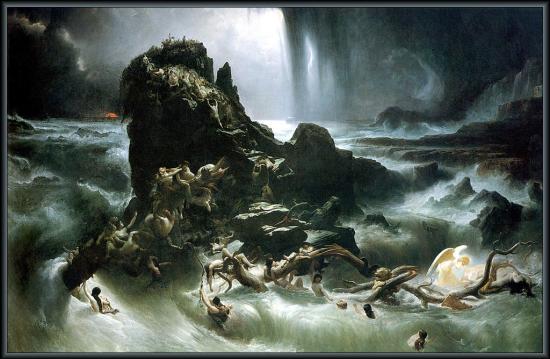
TÄMÄN VEDENPAISUMUKSEN JÄLKEEN
(Continues)
(Continues)
Contributed by Juha Rämö 2024/11/2 - 13:04
Kaksitoista noitaa
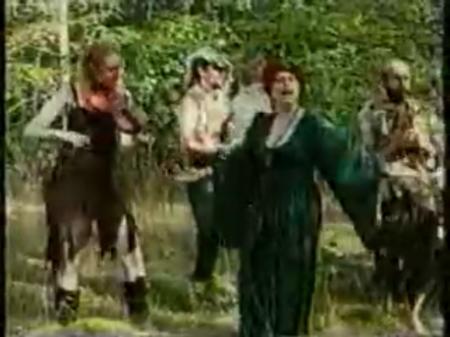
As you can see here, this was an old obsession of mine, and also kind of Holy Graal since the time I put into this site the first songs of Tarujen Saari.
Kaksitoista noitaa eli kerran pohjolassa
(Continues)
(Continues)
Contributed by CCG/AWS Staff 2024/6/24 - 09:34
Song Itineraries:
Witches
Dene wos guet geit
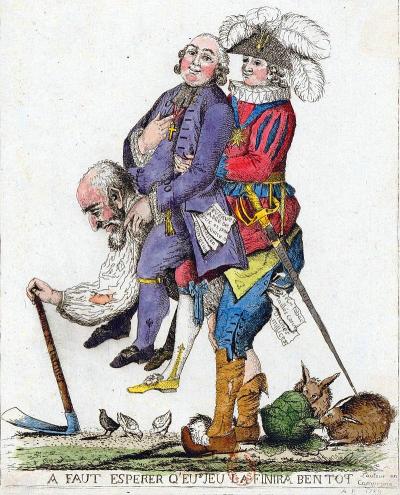
NIILLE, JOILLA MENEE HYVIN
(Continues)
(Continues)
Contributed by Juha Rämö 2024/5/26 - 13:59
The Town of Scottsboro

Picture link: »Scottsboron pojat osavaltion miliisin vartioimina«: https://upload.wikimedia.org/wikipedia...
Scottsboro on pikkukaupunki Alabaman osavaltiossa. Se tunnetaan Yhdysvaltain oikeushistoriaa 1930-luvun alkupuolella järisyttäneestä tapauksesta. Siinä yhdeksästä teini-ikäisestä mustasta nuoresta kahdeksan tuomittiin kuolemaan kahden valkoihoisen naisen raiskauksesta, jolle ei ollut lääketieteellistä näyttöä ja jonka »uhreista« toinen tunnusti myöhemmin keksineensä koko tarinan ja kertoi, ettei mustista nuorista, jotka tunnetaan nimellä Scottsboron pojat, yksikään ollut kajonnut kumpaankaan naiseen.
Kuolemaantuomiot langetettiin kaikkiaan neljässä oikeudenkäynnin irvikuvassa, joissa kaikissa valamiehistö koostui yksinomaan valkoihoisista kansalaisista ja joissa todistelu oli ristiriitaista ja syytettyjen puolustus ala-arvoista. Ketään Scottsboron pojista ei lopulta teloitettu, mutta... (Continues)
Scottsboro on pikkukaupunki Alabaman osavaltiossa. Se tunnetaan Yhdysvaltain oikeushistoriaa 1930-luvun alkupuolella järisyttäneestä tapauksesta. Siinä yhdeksästä teini-ikäisestä mustasta nuoresta kahdeksan tuomittiin kuolemaan kahden valkoihoisen naisen raiskauksesta, jolle ei ollut lääketieteellistä näyttöä ja jonka »uhreista« toinen tunnusti myöhemmin keksineensä koko tarinan ja kertoi, ettei mustista nuorista, jotka tunnetaan nimellä Scottsboron pojat, yksikään ollut kajonnut kumpaankaan naiseen.
Kuolemaantuomiot langetettiin kaikkiaan neljässä oikeudenkäynnin irvikuvassa, joissa kaikissa valamiehistö koostui yksinomaan valkoihoisista kansalaisista ja joissa todistelu oli ristiriitaista ja syytettyjen puolustus ala-arvoista. Ketään Scottsboron pojista ei lopulta teloitettu, mutta... (Continues)
SCOTTSBORO (Continues)
Contributed by Juha Rämö 2024/4/29 - 17:44
Ylpeyden sopuhinta

[2023]
Sanat ja sävel / Testo e musica / Lyrics and music / Paroles et musique: Anna Karjalainen - Kaisa Karjalainen
Album / Albumi: Maailman onnellisin kansa
Sanat ja sävel / Testo e musica / Lyrics and music / Paroles et musique: Anna Karjalainen - Kaisa Karjalainen
Album / Albumi: Maailman onnellisin kansa
Ho, scoperto come voi tutti credo, questo gruppo quando ho visto il bellissimo ultimo film di Aki Kaurismäki, Foglie al vento. Giovedì scorso l'ho proiettato al mio cineforum ed è stato un successo, mi hanno chiesto la clip del brano eseguito nel film e cercandola ho poi curiosato tra le altre loro composizioni. Ho trovato questo brano che mi sembra adatta al sito delle canzoni contro la guerra. Per chi non avesse visto il film vi metto come primo approccio musicale il link alla recensione di Rolling Stone. Con l'articolo che recensisce il film trovate anche la bella clip della loro esibizione nel pub con i sottotitoli in italiano. NB: tutti i brani scelti per il film da Kaurismäki sono sottotitolati per essere compresi dal pubblico in quanto i testi delle canzoni sono parte fondamentale della sceneggiatura del film. [Paolo Rizzi]
Ovat neuvottelut päättyneet
(Continues)
(Continues)
Contributed by Paolo Rizzi 2024/4/21 - 08:32
Laulu II Maailmansodasta
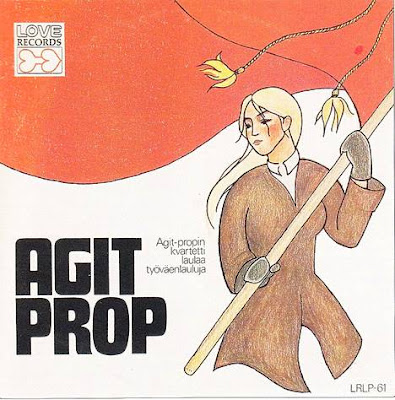
[1972]
Testo / Lyrics / Paroles / Sanat: Raija Laroma
Musica / Music / Musique / Sävel: Heikki Valpola
Album / Albumi: Agit-Propin kvartetti laulaa työväenlauluja
L’intera II guerra mondiale raccontata in una canzone? Ebbene sì. O meglio: almeno una parte della II guerra mondiale; ma non è comunque poco. Poiché gli Agit-Prop erano un quartetto non solo dichiaratamente comunista, ma anche espressione diretta del Partito Comunista Finlandese -e su questo torneremo in seguito), è lecito attendersi una canzone assolutamente ortodossa dal punto di vista storico: il suo testo, scritto dalla scrittrice Raija Laroma, è un’enunciazione puntuale dei dettami storici ufficiali di provenienza sovietica, il tutto su una musica cadenzata (composta da Heikki Valpola) di sentore Brechtiano (o meglio, Eisleriano). Ciononostante, vi sono espressi alcuni concetti innegabili, così come ve ne sono scrupolosamente... (Continues)
Testo / Lyrics / Paroles / Sanat: Raija Laroma
Musica / Music / Musique / Sävel: Heikki Valpola
Album / Albumi: Agit-Propin kvartetti laulaa työväenlauluja
L’intera II guerra mondiale raccontata in una canzone? Ebbene sì. O meglio: almeno una parte della II guerra mondiale; ma non è comunque poco. Poiché gli Agit-Prop erano un quartetto non solo dichiaratamente comunista, ma anche espressione diretta del Partito Comunista Finlandese -e su questo torneremo in seguito), è lecito attendersi una canzone assolutamente ortodossa dal punto di vista storico: il suo testo, scritto dalla scrittrice Raija Laroma, è un’enunciazione puntuale dei dettami storici ufficiali di provenienza sovietica, il tutto su una musica cadenzata (composta da Heikki Valpola) di sentore Brechtiano (o meglio, Eisleriano). Ciononostante, vi sono espressi alcuni concetti innegabili, così come ve ne sono scrupolosamente... (Continues)
Monesta murhenäytelmästä kertoo ihmiskunnan historia.
(Continues)
(Continues)
Contributed by Riku Venturinen 2024/3/20 - 00:51
Köyhien toivo

[1972]
Testo / Lyrics / Paroles / Sanat: Kaj Chydenius
Canta / Singer / Chante / Laulaa: Miia Vuokkonen
Album / Albumi: Agit-prop -kvartetti laulaa työväenlauluja
(Agit-Prop Quartet sings Working Class Songs
Il Quartetto Agit-Prop canta canzoni dei lavoratori)
Testo / Lyrics / Paroles / Sanat: Kaj Chydenius
Canta / Singer / Chante / Laulaa: Miia Vuokkonen
Album / Albumi: Agit-prop -kvartetti laulaa työväenlauluja
(Agit-Prop Quartet sings Working Class Songs
Il Quartetto Agit-Prop canta canzoni dei lavoratori)
Te ootte jo kyllin kestäneet
(Continues)
(Continues)
Contributed by Riccardo Venturi 2024/3/11 - 22:44
Song Itineraries:
The War of Labour: Emigration, Immigration, Exploitation, Slavery
Vietnamissa, Vietnamissa

[1972]
Sävel / Musica / Music / Musique: Kaj Chydenius
Sanat / Testo / Lyrics / Paroles: Aulikki Oksanen
Album / Albumi: Agit-prop -kvartetti laulaa työväenlauluja
(Agit-Prop Quartet sings Working Class Songs
Il Quartetto Agit-Prop canta canzoni dei lavoratori)
Sävel / Musica / Music / Musique: Kaj Chydenius
Sanat / Testo / Lyrics / Paroles: Aulikki Oksanen
Album / Albumi: Agit-prop -kvartetti laulaa työväenlauluja
(Agit-Prop Quartet sings Working Class Songs
Il Quartetto Agit-Prop canta canzoni dei lavoratori)
Vietnamissa, Vietnamissa
(Continues)
(Continues)
Contributed by Riku Ventturinen 2024/3/10 - 23:17
Song Itineraries:
War in Viet Nam as seen from Italy and from the rest of the world
Kylä vuotti uutta kuuta

Canzone popolare finlandese (Carelia o Ingria)
A Finnish folksong (from Karelia or Ingria)
Chanson populaire finlandaise (de Carélie ou Ingrie)
Suomalainen kansanlaulu (Karjala vai Inkeri)
Prima attestazione / First recording / Première communication: 1877
Buon anno a tutte e tutti! Ora, magari vi potreste ragionevolmente chiedere perché vi faccia questo augurio il sei di febbraio, quando l’anno è già cominciato da più di un mese; il fatto è che manco dal sito da oltre due mesi. Non è stato un bell’inizio d’annata per il sottoscritto, tra la malattia e la morte di un’amica cara (dalla quale ho ereditato il gatto) e progressivi e inesorabili problemi di vista, almeno fino a quando non si decideranno ad operarmi di un paio di cataratte oculari una delle quali sembra oramai una cataratta del Nilo. Tutto questo mi costringe, tra le altre cose, a leggere e a scrivere con molta difficoltà,... (Continues)
A Finnish folksong (from Karelia or Ingria)
Chanson populaire finlandaise (de Carélie ou Ingrie)
Suomalainen kansanlaulu (Karjala vai Inkeri)
Prima attestazione / First recording / Première communication: 1877
Buon anno a tutte e tutti! Ora, magari vi potreste ragionevolmente chiedere perché vi faccia questo augurio il sei di febbraio, quando l’anno è già cominciato da più di un mese; il fatto è che manco dal sito da oltre due mesi. Non è stato un bell’inizio d’annata per il sottoscritto, tra la malattia e la morte di un’amica cara (dalla quale ho ereditato il gatto) e progressivi e inesorabili problemi di vista, almeno fino a quando non si decideranno ad operarmi di un paio di cataratte oculari una delle quali sembra oramai una cataratta del Nilo. Tutto questo mi costringe, tra le altre cose, a leggere e a scrivere con molta difficoltà,... (Continues)
Kylä vuotti uutta kuuta,
(Continues)
(Continues)
Contributed by Riccardo Venturi 2024/2/6 - 20:20
The Pogues & Kirsty MacColl: Fairytale of New York

NEW YORKIN SATU
(Continues)
(Continues)
Contributed by Dq82 2024/1/3 - 17:43
Säkkijärven polkka
Anonymous
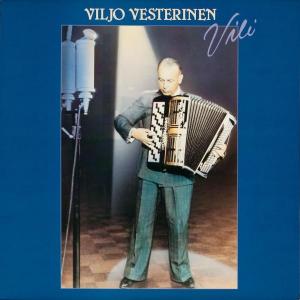
Testo finlandese / Finnish lyrics / Paroles finnoises / Suomenkieliset sanat: Reino Helismaa
Audio link: This is the most legendary instrumental version of Säkkijärven polkka recorded on June 17, 1939 and featuring https://en.wikipedia.org/wiki/Viljo_Vesterinen|Viljo »Vili« Vesterinen]]) and the Dallapé Orchestra:
Although best known as instrumental versions, notably by Viljo Vesterinen, Säkkijärven polkka has also been recorded as a song. The earliest lyrics were written by R. R. Ryynänen, those below by Reino »Repe« Helismaa.
Audio link to the song performed by Matti Ikävalko on a 1953 compilation album titled Repe:
Audio link: This is the most legendary instrumental version of Säkkijärven polkka recorded on June 17, 1939 and featuring https://en.wikipedia.org/wiki/Viljo_Vesterinen|Viljo »Vili« Vesterinen]]) and the Dallapé Orchestra:
Although best known as instrumental versions, notably by Viljo Vesterinen, Säkkijärven polkka has also been recorded as a song. The earliest lyrics were written by R. R. Ryynänen, those below by Reino »Repe« Helismaa.
Audio link to the song performed by Matti Ikävalko on a 1953 compilation album titled Repe:
On kauniina muistona Karjalan maa,
(Continues)
(Continues)
Contributed by Juha Rämö 2023/10/15 - 16:03
Beatles: Here Comes the Sun

Audio link to the song performed by Clifters on their 1989 album Sexi on in:
ELEKIELTÄ
(Continues)
(Continues)
Contributed by Juha Rämö 2023/9/29 - 10:52
Нет, мне ни в чем не надо половины!
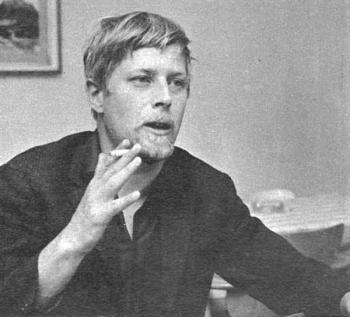
EI PUOLIKASTA
(Continues)
(Continues)
Contributed by Juha Rämö 2023/9/7 - 17:59
La fille aux chansons, ou Marion s'y promène [Isabeau s'y promène; Sur le bord de l'eau et alia]
![La fille aux chansons, <i>ou</i> Marion s'y promène [Isabeau s'y promène; Sur le bord de l'eau <i>et alia</i>]](img/thumb/c50848_130x140.jpeg?1446546179)
Isabel: La versione finlandese degli Ajopuut [2017]
Isabel: Finnish version by Ajopuut
Si tratta in realtà di una versione (di Esko Rahikainen) di una delle tante varianti della canzone, dove la protagonista si chiama Isabeau (qui Isabel); non proviene direttamente, cioè, dalla canzone dei Malicorne. La linea musicale riprende piuttosto le versioni québecoises; i cantanti sono Petri e Anna del gruppo Ajopuut (dall'album Ihana Martta del 2017, contenente versioni finlandesi di canzoni popolari di tutta Europa). La versione è notevolmente più breve di quella dei Malicorne. Detto questo, viene inserita qui anche -e soprattutto- per la sua notevole bellezza, acuita dalla lingua finlandese, la cui armonia è di per sé un canto. Di questa stupenda versione si era già accorta Cattia Salto, che la aveva inserita nelle sue Terre Celtiche assieme a tante altre versioni. [RV]
Isabel: Finnish version by Ajopuut
Si tratta in realtà di una versione (di Esko Rahikainen) di una delle tante varianti della canzone, dove la protagonista si chiama Isabeau (qui Isabel); non proviene direttamente, cioè, dalla canzone dei Malicorne. La linea musicale riprende piuttosto le versioni québecoises; i cantanti sono Petri e Anna del gruppo Ajopuut (dall'album Ihana Martta del 2017, contenente versioni finlandesi di canzoni popolari di tutta Europa). La versione è notevolmente più breve di quella dei Malicorne. Detto questo, viene inserita qui anche -e soprattutto- per la sua notevole bellezza, acuita dalla lingua finlandese, la cui armonia è di per sé un canto. Di questa stupenda versione si era già accorta Cattia Salto, che la aveva inserita nelle sue Terre Celtiche assieme a tante altre versioni. [RV]
Niin kulkee puiston halki
(Continues)
(Continues)
2023/5/3 - 11:52
No More War
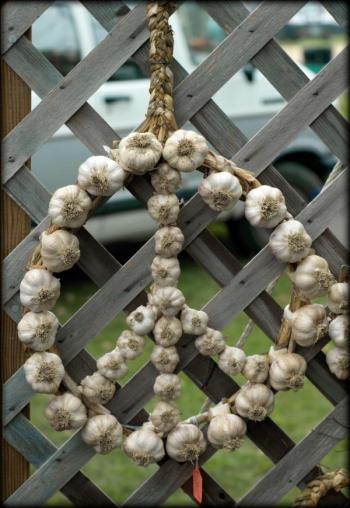
Me lähetämme poikamme ja tyttäremme
(Continues)
(Continues)
Contributed by Juha Rämö 2023/3/28 - 09:41
Jotakin tapahtuu

Näillä Aila Meriluodon säkeillä toivotan kaikille tämän verkkosivun ylläpitäjille ja ystäville rauhallista joulua ja hyvää uutta vuotta 2023.
Ja katso, kaikki ne valvovat tässä,
(Continues)
(Continues)
Contributed by Juha Rämö 2022/12/21 - 17:13
Der Krieg hört nicht auf

SODALLE EI NÄY LOPPUA (Continues)
Contributed by Juha Rämö 2022/12/8 - 12:43
I Just Want to Stop Putin for Christmas

JOULUKSI EROON PUTINISTA (Continues)
Contributed by Juha Rämö 2022/12/7 - 20:54
Die Arbeitsmänner, oder Proletarierlied, oder Wer schafft das Gold zutage?

Köyhälistön laulu / Köyhälistön marssi
Versione finlandese [1899 / 1906]
Finnish version [1899 / 1906]
Version finnoise [1899 / 1906]
Suomenkielinen versio [1899 / 1906]
Performed by Reijo Frank
The earliest Finnish version of »Zu Mantua in Banden«, titled »Proletaarilaulu« (Proletarian Song), was written in 1899 and published for the first time in the 1900 edition of Työväen laulukirja (Workers' Songbook). The below version titled »Köyhälistön laulu« (Song of the Proletary) or »Köyhälistön marssi« (March of the Proletary) is from 1906. The author of the lyrics is unknown. [Juha Rämö]
Sono stato, a dire il vero, un po' incerto se inserire il Köyhälistön laulu (o marssi) finlandese anonimo del 1899 come versione del canto “proto-Hoferide” di Johann Most del 1870, oppure addirittura come canto autonomo con una propria pagina. Questa primissima (e, a quanto per ora risulta, unica) versione... (Continues)
Versione finlandese [1899 / 1906]
Finnish version [1899 / 1906]
Version finnoise [1899 / 1906]
Suomenkielinen versio [1899 / 1906]
Performed by Reijo Frank
The earliest Finnish version of »Zu Mantua in Banden«, titled »Proletaarilaulu« (Proletarian Song), was written in 1899 and published for the first time in the 1900 edition of Työväen laulukirja (Workers' Songbook). The below version titled »Köyhälistön laulu« (Song of the Proletary) or »Köyhälistön marssi« (March of the Proletary) is from 1906. The author of the lyrics is unknown. [Juha Rämö]
Sono stato, a dire il vero, un po' incerto se inserire il Köyhälistön laulu (o marssi) finlandese anonimo del 1899 come versione del canto “proto-Hoferide” di Johann Most del 1870, oppure addirittura come canto autonomo con una propria pagina. Questa primissima (e, a quanto per ora risulta, unica) versione... (Continues)
Köyhälistön laulu
(Continues)
(Continues)
Contributed by Juha Rämö (+ RV) 2022/11/11 - 18:33
Lied der Jugend, oder Dem Morgenrot entgegen, oder Die junge Garde
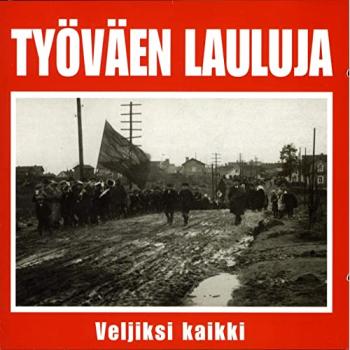
Nuori kaarti
Versione finlandese [1935?]
Finnish version [1935?]
Version finnoise [1935?]
Suomenkielinen versio [1935?]
Performed by Reijo Frank
Interpretata da Reijo Frank
Nota. Questa sezione è stata scorporata (e integrata) dalla pagina dedicata a Ihr Brüder in den Städten dort, dove si trovava originariamente inserita da Juha Rämö.
In Finlandia, come abbiamo visto, il canto proletario e di lotta sull'aria dell'Andreas Hofer-Lied ha già un'antica tradizione: fin dal 1899, infatti, se ne ha una versione derivata direttamente da Die Arbeitsmänner, il primo “Hoferide” scritto da Johann Most attorno al 1870 sulla melodia di Leopold Knebelsberger. La presente è invece una versione (anonima) di Dem Morgenrot entgegen, che appare derivata direttamente dal canto tedesco senza intervento della versione russa. L'anno di composizione non è certo; se ne hanno notizie per la prima volta nel 1935... (Continues)
Versione finlandese [1935?]
Finnish version [1935?]
Version finnoise [1935?]
Suomenkielinen versio [1935?]
Performed by Reijo Frank
Interpretata da Reijo Frank
Nota. Questa sezione è stata scorporata (e integrata) dalla pagina dedicata a Ihr Brüder in den Städten dort, dove si trovava originariamente inserita da Juha Rämö.
In Finlandia, come abbiamo visto, il canto proletario e di lotta sull'aria dell'Andreas Hofer-Lied ha già un'antica tradizione: fin dal 1899, infatti, se ne ha una versione derivata direttamente da Die Arbeitsmänner, il primo “Hoferide” scritto da Johann Most attorno al 1870 sulla melodia di Leopold Knebelsberger. La presente è invece una versione (anonima) di Dem Morgenrot entgegen, che appare derivata direttamente dal canto tedesco senza intervento della versione russa. L'anno di composizione non è certo; se ne hanno notizie per la prima volta nel 1935... (Continues)
Nuori kaarti
(Continues)
(Continues)
Contributed by Juha Rämö (+ RV) 2022/11/11 - 05:27
Erklärungsnot

Juha Rämö
"Tämä laulu voitti ensimmäisen palkinnon Saksan rauhanlaulukilpailussa 2022." [JR]
KUN SANAT EIVÄT RIITÄ
(Continues)
(Continues)
Contributed by Juha Rämö 2022/11/8 - 19:27
Le Père Noël et la petite fille, incl.Leggenda di Natale; La canzone di Marinella; Bocca di Rosa
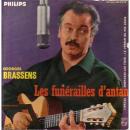
Fabrizio De André: Bocca di Rosa
Traduzione finlandese / Finnish translation / Traduction finnoise / Suomennos: Juha Rämö
Traduzione finlandese / Finnish translation / Traduction finnoise / Suomennos: Juha Rämö
RUUSUSUU
(Continues)
(Continues)
Contributed by Juha Rämö 2022/10/31 - 21:06
Putin-setä asuu Venäjällä
Anonymous

[2022]
Il punto di partenza di questa “canzoncina attualizzata” sembra essere una simile canzoncina di cinquant'anni fa precisi (1972), intitolata Lenin-setä asuu Venäjällä [*], ovvero “Zio Lenin vive in Russia”. Qui ve la facciamo ascoltare dagli Åttopojat in una registrazione del 2014:
La canzoncina era assolutamente tale: si trattava infatti, in origine, di una canzoncina per bambini vietnamita intitolata Ông Lê Nin ở nước Nga, scritta da tale Nguyễn Hồng Kiên e musicata da Trần Đăng Khoa, nella quale, sulla scorta dello “zio Ho”, diventava zio pure Lenin. La versione finlandese fu preparata da Matti Rossi (1934-2017) sulla base del testo originale vietnamita, e poi composta da Eero Ojanen. Si noti comunque la vocina infantile flautata (e, probabilmente, campionata) con cui è cantata questa canzoncina sugli zii di turno. [RV]
[*] La “Russia” è un caso curioso nella lingua finlandese.... (Continues)
Il punto di partenza di questa “canzoncina attualizzata” sembra essere una simile canzoncina di cinquant'anni fa precisi (1972), intitolata Lenin-setä asuu Venäjällä [*], ovvero “Zio Lenin vive in Russia”. Qui ve la facciamo ascoltare dagli Åttopojat in una registrazione del 2014:
La canzoncina era assolutamente tale: si trattava infatti, in origine, di una canzoncina per bambini vietnamita intitolata Ông Lê Nin ở nước Nga, scritta da tale Nguyễn Hồng Kiên e musicata da Trần Đăng Khoa, nella quale, sulla scorta dello “zio Ho”, diventava zio pure Lenin. La versione finlandese fu preparata da Matti Rossi (1934-2017) sulla base del testo originale vietnamita, e poi composta da Eero Ojanen. Si noti comunque la vocina infantile flautata (e, probabilmente, campionata) con cui è cantata questa canzoncina sugli zii di turno. [RV]
[*] La “Russia” è un caso curioso nella lingua finlandese.... (Continues)
Putin-setä asuu Venäjällä,
(Continues)
(Continues)
Contributed by Juha Rämö 2022/10/9 - 20:08
Song Itineraries:
Wars in Ukraine
Krystallomantia
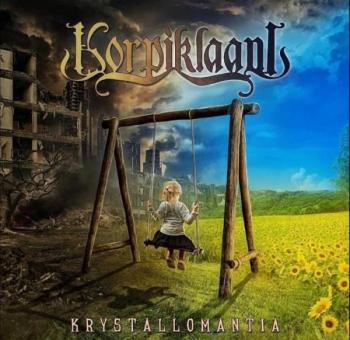
(2022)
Finnish Folk Metal Superstars KORPIKLAANI have released a new single called "Krystallomantia" which sees the band couple their trademark sound with their most politically influenced lyrics to date. The melancholic, yet upbeat anti-war song was written about Ukraine and the ongoing Russian invasion currently happening in that country.
KNAC.COM
Finnish Folk Metal Superstars KORPIKLAANI have released a new single called "Krystallomantia" which sees the band couple their trademark sound with their most politically influenced lyrics to date. The melancholic, yet upbeat anti-war song was written about Ukraine and the ongoing Russian invasion currently happening in that country.
KNAC.COM
On liikkumaton, tanssija eessä
(Continues)
(Continues)
2022/9/2 - 16:45
Song Itineraries:
Wars in Ukraine
Franco Battiato: I Treni di Tozeur

Album: Tunteet
JUNA TURKUUN
(Continues)
(Continues)
Contributed by Riccardo Gullotta 2022/8/12 - 22:51
Du är aldrig ensam

Picture link:
ET OLE KOSKAAN YKSIN
(Continues)
(Continues)
Contributed by Juha Rämö 2022/8/12 - 11:44
Teräksen soitto
Axel Simonen
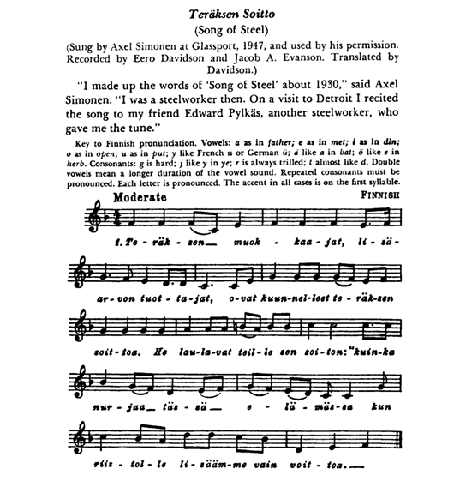
[ ~ 1930 ]
Musica / Music / Musique / Sävel: Edward Pylkäs
Testo / Lyrics / Paroles / Sanat: Axel Simonen
Source: Pennsylvania Songs and Legends, edited by George Korson, University of Pennsylvania Press,
Philadelphia 1949, pp. 451 - 453
Teräksen soitto (Song of Steel)
(Sung by Axel Simonen at Glassport, 1947, and used by his permission. Recorded by Eero Davidson and Jacob A. Evanson. Translated by Davidson).
“I made up the words of 'Song of Steel' about 1930”, said Axel Simonen. “I was a steelworker then. On a visit to Detroit I recited the song to my friend Edward Pylkäs, another steelworker, who gave me the tune”. [Axel Simonen, see Source]
“Finally, this enumeration of ethnic musicians would be incomplete without mention of the men and women writing new song lyrics and music for their countrymen. Some were humble laborers unaccustomed to writing verse or with hardly any musical... (Continues)
Musica / Music / Musique / Sävel: Edward Pylkäs
Testo / Lyrics / Paroles / Sanat: Axel Simonen
Source: Pennsylvania Songs and Legends, edited by George Korson, University of Pennsylvania Press,
Philadelphia 1949, pp. 451 - 453
Teräksen soitto (Song of Steel)
(Sung by Axel Simonen at Glassport, 1947, and used by his permission. Recorded by Eero Davidson and Jacob A. Evanson. Translated by Davidson).
“I made up the words of 'Song of Steel' about 1930”, said Axel Simonen. “I was a steelworker then. On a visit to Detroit I recited the song to my friend Edward Pylkäs, another steelworker, who gave me the tune”. [Axel Simonen, see Source]
“Finally, this enumeration of ethnic musicians would be incomplete without mention of the men and women writing new song lyrics and music for their countrymen. Some were humble laborers unaccustomed to writing verse or with hardly any musical... (Continues)
Teräksen muokkaajat,
(Continues)
(Continues)
Contributed by Pluck + Juha Rämö + CCG/AWS Staff 2022/8/5 - 20:54
Song Itineraries:
The War of Labour: Emigration, Immigration, Exploitation, Slavery
Me gustan los estudiantes

HURRAA OPISKELIJOILLE
(Continues)
(Continues)
Contributed by Juha Rämö 2022/7/30 - 09:58
I han es Zündhölzli azündt

RAAPAISIN TULITIKUN
(Continues)
(Continues)
Contributed by Juha Rämö 2022/7/28 - 13:54
Hur sköra vi är (Fragile)

KUINKA HAURAITA OLEMMEKAAN
(Continues)
(Continues)
Contributed by Juha Rämö 2022/7/24 - 14:58
Krieg kennt keine Sieger
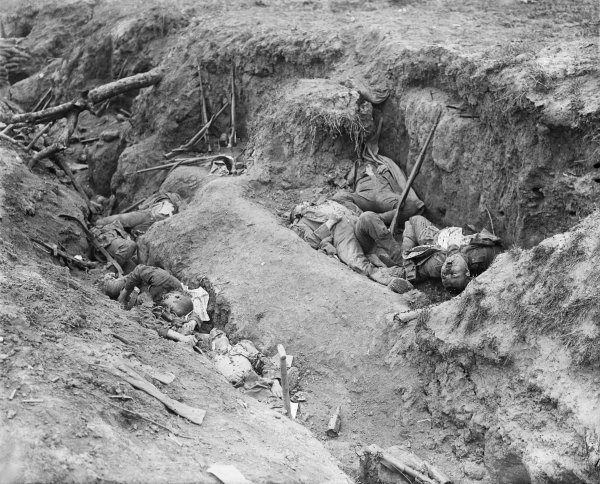
SOTA EI TUNNE VOITTAJIA
(Continues)
(Continues)
Contributed by Juha Rämö 2022/7/14 - 13:20
Lawrence Ferlinghetti: Pity the Nation (After Khalil Gibran)
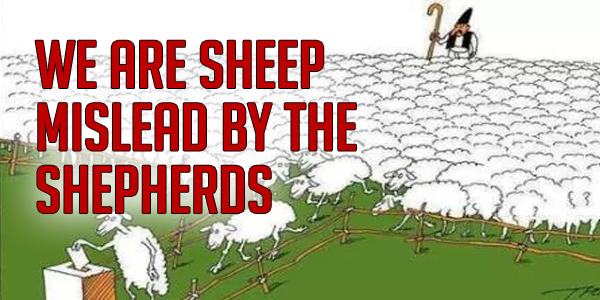
VOI KANSAKUNTAA (Khalil Gibrania mukaillen)
(Continues)
(Continues)
Contributed by Juha Rämö 2022/6/20 - 22:32
Gedicht
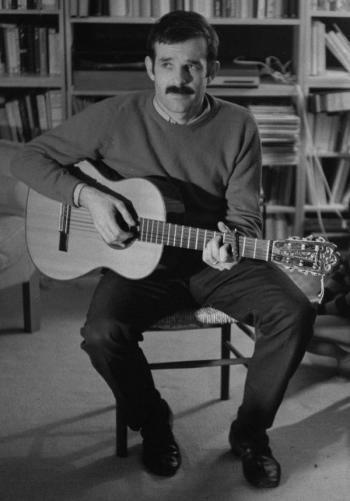
Hans Peter »Mani« Matter (1936 - 1972) oli sveitsiläinen lauluntekijä ja juristi. Hänen Bernin saksaksi kirjoittamansa laulut kertovat usein arkisista asioista, joita on ryyditetty filosofisilla ja absurdeilla pohdinnoilla. Tämän runon, tai pikemminkin lorun, auto-onnettomuudessa nuorena kuollut Matter on kirjoittanut omille lapsilleen.
RUNO
(Continues)
(Continues)
Contributed by Juha Rämö 2022/6/16 - 14:42
Реве та стогне Днiпр широкий
Anonymous
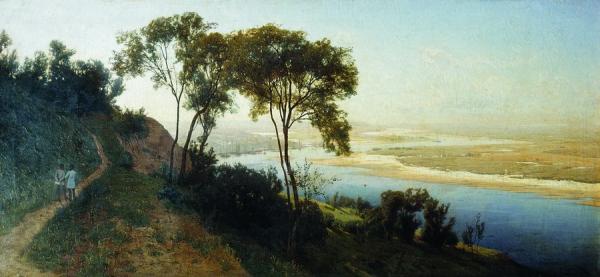
LAULU DNJEPRILLE
(Continues)
(Continues)
Contributed by Juha Rämö 2022/4/10 - 13:18
Прости-прощай, Одесса мама [Some of these days]
![Прости-прощай, Одесса мама [Some of these days]](img/upl/M._A._Numminen_-_Ilosaarirock_2008.jpg)
Audio link to the song performed by M. A. Numminen ( & the Neo-Vulgar Jazz Orchestra on their 1970 album Swingin kutsu (The Call of Swing):
NÄINÄ PÄIVINÄ
(Continues)
(Continues)
Contributed by Juha Rämö 2022/3/5 - 19:31
×
![]()


